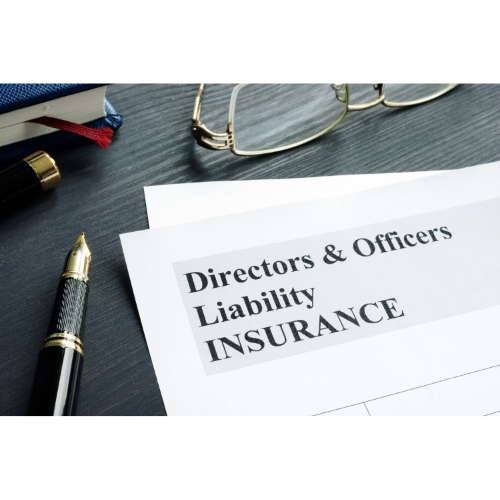What Is D&O Insurance, And Do I Need It?

Directors and officers (D&O) liability insurance is a must for anyone who serves on a board of directors. In short, it offers protection from legal fees if someone were to sue the organization you are a part of. As community partners and angel investors, KIG owners Andy and Laurie Kuzneski sit on a lot of boards – private, public, nonprofit – and their advice is: Never join a board that does not have D&O insurance.
What does it cover?
D&O is a separate policy from general liability insurance. In short, it protects the personal assets of corporate directors and officers in the event that they are personally sued by employees, vendors, competitors, investors, customers, etc., in their role in managing the company. The insurance, which usually protects the company as well, covers legal fees, settlements, governmental fines and other costs.
There are a whole host of reasons why board directors and officers may be sued, including:
- Breach of duty
- Collusion
- Misuse of company funds
- Failure to comply with workplace laws
- Lack of corporate governance
However, D&O insurance does not cover criminal or intentional non-compliant acts, or deliberate fraud or omissions. Even if you are not personally involved in any misdeeds, or the organization is exonerated, there still could be hefty legal fees involved.
What does it cost?
The premium for D&O insurance differs depending on the type of organization. Boards that support for-profit companies pay substantially more than nonprofit boards. Coverage for a for-profit board is in the neighborhood of $7,000-$9,000 per $1 million of coverage. For a nonprofit, the rate is typically less than $1,000 per million in coverage.
Why? Mainly because nonprofits don’t get sued as frequently. Let’s face it: A nonprofit board is given more slack because it is made up of volunteers, presumably with the organization’s best intentions in mind, Andy says. Plus, the board members are often well-known in the community, and not looked at as some faceless committee just looking to earn a buck. Not to mention, nonprofits don’t usually have as much in the bank anyway.
Interestingly, the number of board members does not have a direct influence on the premium. What does influence the premium are things like industry type, location and value of the company, and litigation history. For-profit entities can also be impacted by recent or prospective mergers and acquisitions, profitability, market capitalization, and quality of balance sheet.
To be clear, board members do not personally have to buy D&O insurance. That is up to the organization to do. Having such a policy in place can help attract top-tier board members.
How is it structured?
Technical alert: D&O has three types of policies: Sides A, B and C:
- Side A protects assets of individuals for claims where the company is not legally or financially able to fund indemnification (a clause that contractually obligates one party to compensate another party for losses or damages). A company’s bylaws may contain indemnification for directors and officers.
- Side B reimburses public or private companies that are indemnified.
- Side C extends cover for a public entity for securities claims.
In general, publicly listed companies choose ABC policies, while private and nonprofits need only AB policies.
Whether a startup or an established business, if you have a board of directors, you should have a D&O insurance policy. If you want help in determining which factors will affect the cost of your policy, call us at (724) 349-1919.


Share Your Thoughts